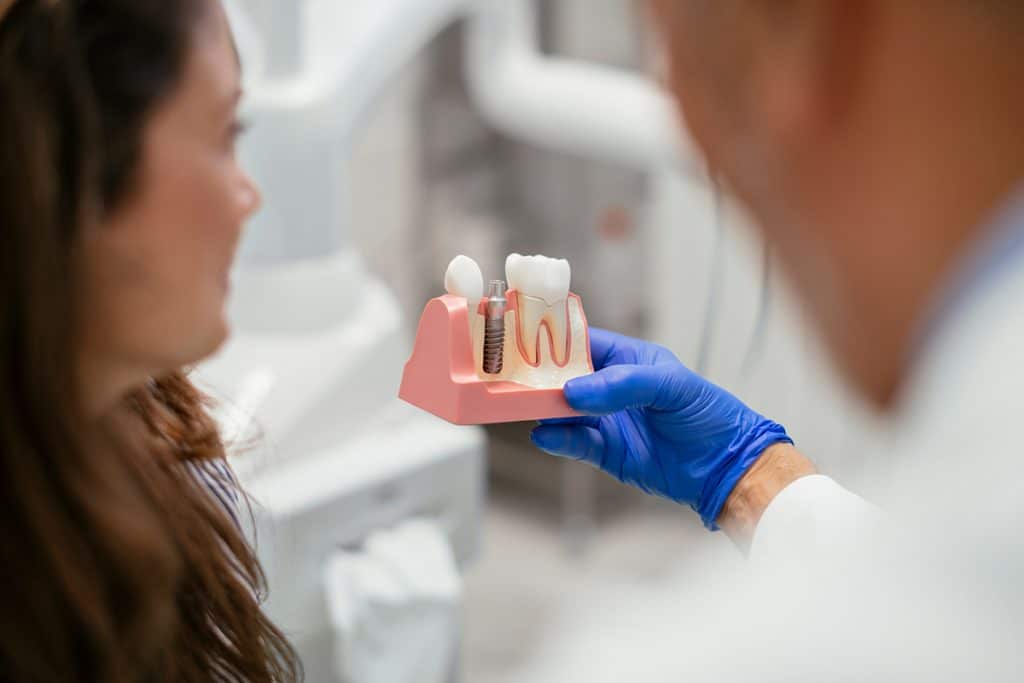Dental Implants vs. Bridges: Pros, Cons & Best Choice

When it comes to replacing missing teeth, the two most popular options that patients commonly consider are dental implants and bridges. Each solution comes with its unique set of benefits and challenges, making the choice highly dependent on individual needs, health conditions, and long-term goals. At Lucca Oral and Facial Surgery, we aim to provide you with the insights you need to make an informed decision about your oral health.
If you’re unsure whether dental implants or bridges are the right solution for you, we’re here to help. Let's compare the two options to help you understand their pros, cons, and which might be the best choice for your specific situation.
Understanding Dental Implants
Dental implants are one of the most advanced solutions in modern dentistry. They involve the surgical placement of a titanium post into the jawbone, which acts as a sturdy support for a replacement tooth or crown. Over time, the implant naturally fuses with the bone, creating a durable and permanent solution.
Benefits of Dental Implants
- Longevity: Implants are designed to last a lifetime with proper care, unlike bridges, which may require replacement after a decade.
- Enhanced Bone Health: One unique benefit of dental implants is their ability to stimulate the jawbone, preventing bone loss and maintaining facial structure.
- Natural Appearance: Dental implants closely mimic the appearance and feel of natural teeth, providing an aesthetically pleasing result.
- Functionality: Offering the same bite strength as natural teeth, implants allow patients to eat, speak, and smile confidently.
Potential Downsides
- Implants require a surgical procedure, and the healing process can take several months.
- Candidacy: Patients need to have sufficient jawbone density to qualify for implants, although bone grafting can help in certain situations.
Exploring Dental Bridges
A dental bridge, as the name suggests, "bridges" the gap created by one or more missing teeth. It is supported by adjacent teeth, which are prepared by trimming down to accommodate the crowns that anchor the bridge. This non-surgical option can be an attractive choice for those who want a non surgical solution or for those who are not a candidate for dental implants.
Benefits of Dental Bridges
- Quicker Timeline: The process of fitting and installing a bridge is faster, usually completed within two visits to the dentist.
- Non-Surgical: Since bridges don’t require surgical intervention, they are a less invasive option.
Potential Downsides
- Reduced Longevity: Bridges generally last 10–15 years, which is shorter than the lifespan of implants.
- Impact on Adjacent Teeth: To anchor the bridge, the adjacent healthy teeth must be trimmed down, which could weaken them over time.
- A Problem with One is a Problem for All: Because dental bridges are anchored on adjacent teeth, any problem with one tooth means that the entire bridge is compromised.
- Bone Health: Unlike implants, bridges don’t stimulate the jawbone, which can lead to gradual bone loss in the area of the missing tooth.
Which Option is Right for You?
Choosing between a dental implant and a bridge ultimately depends on your individual needs, budget, and long-term dental goals. Here are a few key considerations to help you decide:
- Your Oral Health: If you have sufficient jawbone density and prioritize longevity, dental implants may be the ideal choice. For individuals who can't or prefer not to undergo surgery, bridges offer a simpler alternative.
- Functionality and Appearance: Implants feel and function like natural teeth, offering superior confidence when eating, speaking, and smiling.
- Time Sensitivity: If you’re seeking a faster solution, bridges can be completed in a shorter time frame compared to the months-long process of implants.
Our team at Lucca Oral and Facial Surgery specializes in helping patients explore the best options for replacing missing teeth. With personalized guidance, we’ll ensure your decision perfectly aligns with your lifestyle and oral health goals.
Frequently Asked Questions About Dental Implants
What is the success rate of dental implants?
Dental implants boast an impressive success rate of 95%-98% when placed by experienced oral surgeons and accompanied by proper care. Factors such as good oral hygiene and overall health contribute significantly to the long-term success of your implant.
Are dental implants painful?
The procedure for placing dental implants is typically performed under local anesthesia or sedation, ensuring that it’s as comfortable as possible. Postoperatively, minimal discomfort is expected and can be managed with over-the-counter pain relievers. Most patients report that the results are well worth the temporary recovery period.
At Lucca Oral and Facial Surgery, we are committed to providing exceptional care and personalized solutions for our patients in Boston and neighboring communities. Our experienced team uses advanced technology to deliver outstanding results in dental implants, oral surgery, and more. If you’re looking to restore your smile, contact us today to schedule your consultation.






